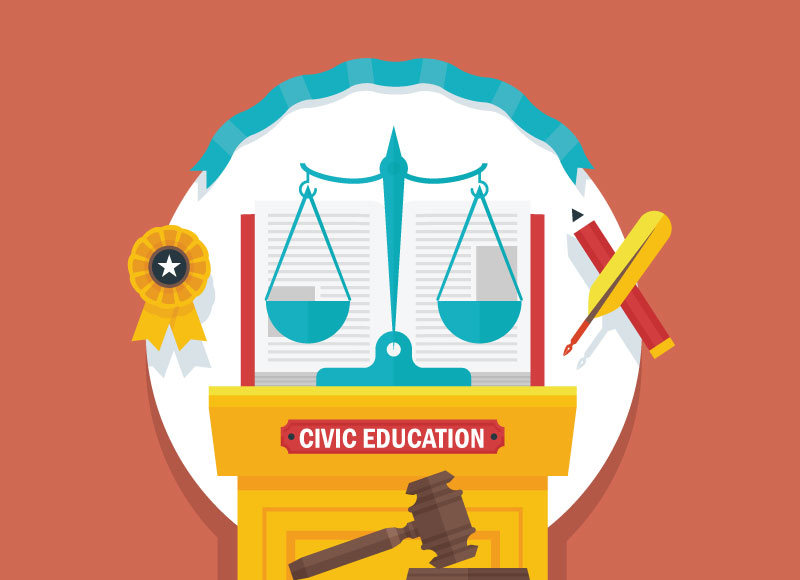A Look at Civics Education, State by State
A study of high school curricula across the country shows that civics education is not widely prioritized nor are there guidelines for the specific content to be taught within the subject.

As this presidential election year begins, and librarians appear to be taking on a larger role to support civics education in schools across the country, data shows us that not all states are providing or prioritizing civics instruction for their students.
The Center for American Progress—an independent progressive policy institute—analyzed civics courses and requirements in U.S. high schools. To evaluate a state’s civics curriculum, the organization looked at course materials and standards in five areas: explanation or comparison of democracy; the U.S. Constitution and Bill of Rights; public participation; information on state and local voting rules; and media literacy and the role and influence of media.
The report found:
Twenty-six states met all five established curriculum requirements.
Thirty states require at least a semester of standalone civics courses; eight states and Washington, DC, require a full-year course. Hawaii requires 1.5 credits. The 11 states that have no civics requirements are Alaska, Delaware, Kentucky, Maine, Massachusetts, Montana, Nebraska, New Jersey, Oregon, Rhode Island, and Vermont.
Less than half (40 percent) of states require students to take a civics exam as a graduation requirement. Indiana and Nevada added this requirement in 2018. Kentucky includes the requirement but does not mandate a civics course. It is the only state the requires the exam without requiring a class on the subject.
Two out of three states address media literacy in their civics curriculum.
Only Washington, DC, and Maryland require community service for students to graduate. Twenty-three states give academic credit for community service.
Many schools offer civics classes or at least include civics as part of the social studies curriculum in middle school, but the results of those attempts are not encouraging. The National Assessment of Educational Progress measures proficiency of eighth graders in U.S. history, geography, and civics. Its report card from the 2014 assessment showed that only 23 percent of the 9,100 eighth graders given the tests were at or above proficiency levels in civics. That was no significant change from the 2010 results.
The assessment asks students about the American political system and government, world affairs, and the roles of citizens. For example, the eighth graders were asked to name a presidential responsibility not outlined in the Constitution, fill in a chart outlining the checks and balances in government, and interpret a graph about voting behavior.
A new U.S. history, geography, and civics report card based on 2018 assessments is scheduled to be released in the spring.
RELATED
The job outlook in 2030: Librarians will be in demand
The job outlook in 2030: Librarians will be in demand
ALREADY A SUBSCRIBER? LOG IN
We are currently offering this content for free. Sign up now to activate your personal profile, where you can save articles for future viewing






Add Comment :-
Be the first reader to comment.
Comment Policy:
Comment should not be empty !!!